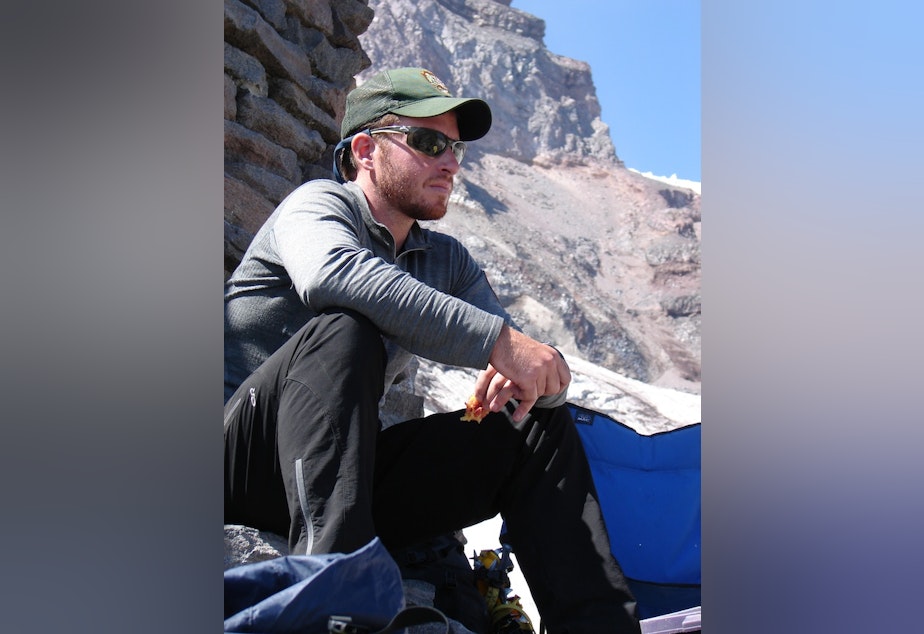Ranger's Death During Mt. Rainier Rescue Sparks Changes

The National Park Service said Tuesday it is increasing safety training and altering some rescue techniques in the wake of the death of ranger Nick Hall on Mt. Rainier last June.
Park Service officials made the recommendations following a report released Tuesday, detailing the incident. As a result of the review, they said the Park Service would begin favoring a technique that puts the ranger on a wire dangling from a helicopter, instead of on the ground battling a rescue litter.
They also said rescuers have to battle an old foe: something called "risk normalization." The Park Service says it is common for people who work in dangerous situations to get used to the risk, and to fail to take every precaution.
Hall slid and fell to his death while rescuing four Texas climbers. The report said he slipped on heavily crusted snow while using both hands to control a rescue litter, a basket used to hoist injured people up to a helicopter. He had no ice tool or tether to stop his slide.
Hall’s trouble started when the rescue litter was tossed by crosswinds and by wind generated by the helicopter itself. One observer said the 60- to 80-mile-per-hour winds coming off the helicopter rotors were strong enough to “blow him off the mountain.”
But Hall was not secured by a snow anchor, and he set down his ice tool to steady the rescue litter. When he lost his footing, he tried to stop his slide on the ski hill-like incline, but couldn’t dent the ice. He eventually fell to his death.
The report notes that none of the other rangers involved that day were using a snow anchor or another tether to secure themselves. The Park Service says people who work in dangerous circumstances become used to the danger and may not evaluate risk correctly. The rescue site was on a 30-degree incline, but it was icy. And there was pressure: There were problems with wind and communications, and there were only four rescuers to aid the four injured climbers.
The Park Service said rangers would receive training about the importance of safety procedures.
